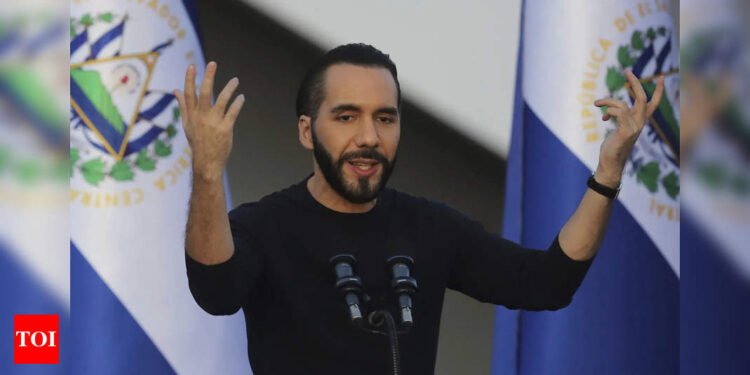Headline: El Salvador Achieves Over $600 Million in Bitcoin Holdings Amid Cryptocurrency Market Surge
Overview: President Nayib Bukele of El Salvador recently shared the nation’s remarkable achievement of surpassing $600 million in Bitcoin holdings. This milestone coincided with Bitcoin’s breakthrough above $100,000, signaling a significant upsurge in the cryptocurrency sector.
Insights from an Expert: Elon Musk, the renowned CEO of Tesla and SpaceX and a prominent advocate for cryptocurrencies, responded to Bukele’s announcement with a concise yet impactful word, “Impressive.” Musk’s acknowledgment underscores the growing influence of Bitcoin and its escalating prominence in the global market.
Market Perspective: El Salvador’s adoption of Bitcoin as legal tender in 2021, when the cryptocurrency was valued at approximately $36,000, has resulted in substantial investments exceeding $269.7 million. Currently holding close to 6,000 Bitcoins, the country has amassed an impressive unrealized profit of more than $333 million. The recent surge to $103,465.81 is attributed to heightened enthusiasm stemming from the recent U.S. elections, notably the appointment of crypto-friendly individuals like Paul Atkins as the Securities and Exchange Commission chair.
Implications and Analysis: The escalation in Bitcoin’s value bears significance not only for El Salvador but also for the global cryptocurrency sphere. This spike in interest could lead to amplified investments in Bitcoin-backed exchange-traded funds (ETFs) in the U.S. and instigate discussions surrounding comprehensive regulatory frameworks favoring cryptocurrency adoption. Bukele’s bold stance in defiance of warnings from entities like the International Monetary Fund (IMF) positions El Salvador at the forefront of a revolutionary financial movement, capitalizing on its role as a pioneer in incorporating cryptocurrencies into formal economic structures.
Wrap-up: El Salvador’s remarkable progression in Bitcoin valuation highlights the nation’s distinctive approach to leveraging cryptocurrency to foster economic prospects, particularly for its underbanked populace. As digital currencies, such as Bitcoin, gain increasing traction, El Salvador’s experience stands as a vital case study for other nations contemplating the benefits and risks of implementing similar strategies. Overall, this advancement not only mirrors evolving dynamics in currency and finance but also indicates a potential shift in the global perception and regulation of digital currencies.








